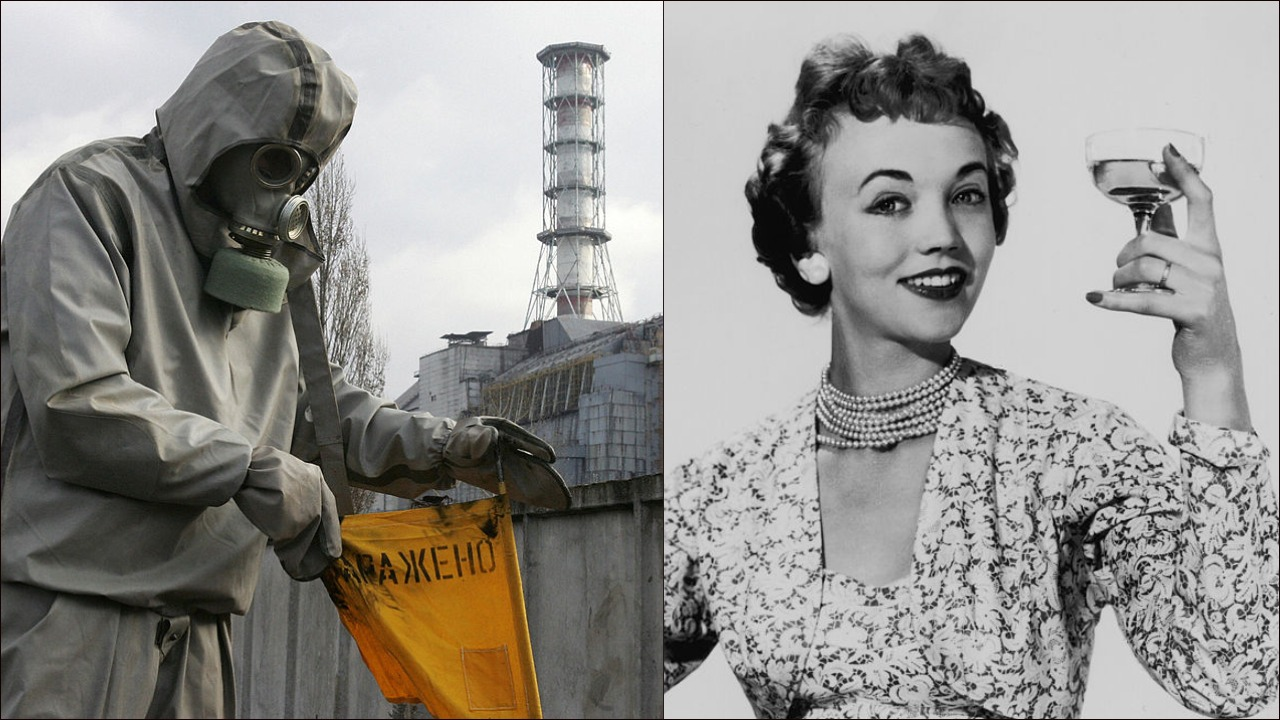First Shipment Of Chernobyl-Produced Vodka Seized By Authorities
The Chernobyl Exclusion Zone is 1,017 square miles of radioactive land that will not be habitable for humans for another 24,000 years. In addition to radiation, it's also home to thousands of wildcats, feral boars, wolves, and surly Russian bears, who may or may not be developing superpowers. It's precisely the sort of environment that makes a person think "Know what this place could really use? Locally-sourced artisan spirits." Unfortunately for the team at Atomik Spirits, Ukrainian authorities are less than enthusiastic about this idea, and have seized the company's first shipment of vodka, which was distilled from the finest Chernobyl-area apples.
The BBC reports that authorities seized 1,500 bottles of Atomik on March 19. They were the first consumer product to be produced in Chernobyl since the area's infamous nuclear disaster in 1986. The scientists who founded the company say they have "no idea" why the UK-bound shipment was seized, which I suppose is the sort of thing that can happen when you've spent years futzing around with apples grown in a radioactive wasteland.
"It seems that they are accusing us of using forged Ukrainian excise stamps," said Professor Jim Smith, a co-founder of Chernobyl Spirit Company and also a scientist who has spent several years studying the exclusion zone. "But this doesn't make sense since the bottles are for the UK market and are clearly labelled with valid UK excise stamps." So, it's a stamp issue. Yup. Makes total sense.
Though it's easy to be terrified by the entire Atomik Vodka concept, the idea behind its creation is somewhat admirable. The self-described social enterprise company was founded by scientists hoping to prove that the land around the exclusion zone is safe for agricultural use, which would give communities in the surrounding area a much-needed source of income. The scientists have tested a myriad of crops grown at the outskirts of the exclusion zone; the apples Atomik is distilled from were grown in the Narodichi district, where agriculture is currently restricted. At a tasting in 2019, Professor Smith told reporters from the BBC that the finished product is"no more radioactive than any other vodka," which is good.
If the 1,500 bottles are ever released by authorities, they'll be doing some good in addition to getting people hammered: Atomik plans to use a portion of its profits to aid Chernobyl-adjacent villages, which have not exactly been thriving during the past 35 years. Maybe that news will inspire the Ukrainian government to quickly resolve whatever "stamp" issues they're having.
